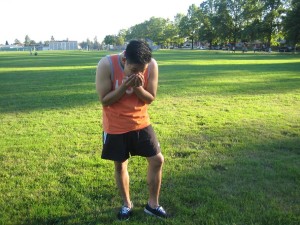Individuals can develop mold allergy to the seasonal outdoor fungi or indoor molds. When it comes to the outdoor molds, they thrive on decaying leaves while the indoor molds thrive on damp areas and release fungal spores once they reproduce. The symptoms of both types of mold allergies are similar which includes episodes of sneezing and itchiness as well as stuffed nose. The suitable medications for mold allergy can be used but they have side effects and usage restrictions that you should be well aware of.
It is best that you are prepared to handle an allergic reaction to mold by enrolling in a first aid course today. In doing so, you are prepared with the appropriate steps to carry out.
Decongestants

The decongestant nasal sprays specifically oxymetazoline can work effectively only for three days. After this given time frame, it can lead to congestion. The orally-taken decongestants such as pseudoephedrine are limited to 7-day courses. Take note that these over-the-counter medications are suitable for those with seasonal mold allergies that only flare up occasionally or those who have allergy symptoms such as runny or stuffy nose.
Those who have heart issues must not take pseudoephedrine and oxymetazoline since these medications will cause an increase in the blood pressure. Even though these drugs alone will not cause drowsiness, some manufacturers often add compounds that can cause the symptom, especially with the nighttime combination medications.
Nasal corticosteroids
The prescription nasal corticosteroids can effectively and safely manage most cases including young children and those who have heart issues. The low dosage steroid nasal sprays can deal with the symptoms without triggering sedation and can be used on a daily basis. These mold allergy medications are suitable for those who have perennial allergy symptoms on most days.
Even children starting 2 years old and those who have heart issues can endure some of the nasal corticosteroids. The doctor will prescribe the appropriate compound among medications such as budesonide, fluticasone furoate and mometasone furoate.
Antihistamines
Most of the stand-alone and combination antihistamine medications are best for managing seasonal instead of the perennial mold allergies since they cause sedation. These medications can also provide effective treatment for itchiness, respiratory issues and watery eyes. The usual over-the-counter antihistamines such as cetirizine or diphenhydramine can be sold alone or combined with a decongestant component that deals with stuffy nose. Adults who prefer a lower dose can opt for the extended-relief options. Just remember that children should not be given medications that cause drowsiness.
Individuals who want to avoid the sedative effects of the antihistamine formulas can use loratidine or the prescription-strength desloratadine. Take note that both of these medications are available in decongestant combination products as well which can be suitable options for comprehensive symptom relief for those who are suffering from year-round allergies.
